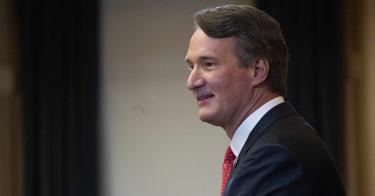It’s a sad reality that predators often prey on the most vulnerable members of society—especially children.
New technologies, despite all the benefits they provide to society, have only made this old problem much worse. Today, the internet makes it easier than ever for those seeking to harm children to find victims and to distribute videos and pictures of heinous crimes against them.
Elected leaders in many states have recognized the dangers children face today and have taken action. Virginia is no exception. And on May 22, Gov. Glenn Youngkin signed into law three bills that state legislators overwhelmingly passed to protect children.
One bill addressed a gap in coverage of the current amber alert system. Another allows for harsher sentences for those convicted of sexual battery or sexual abuse of a child between the ages of 13 and 15. And finally, Youngkin signed into law a bill designed to make clear that AI-generated child pornography would also be criminalized in the state.
This last bill passed with overwhelming bipartisan support—receiving not even a single no vote in either Virginia’s Senate or its House of Delegates. While some have argued that such “fake” child pornography is protected by the First Amendment, that’s wrong.
First, what many people today classify as AI-generated child pornography actually uses the images of real children to generate new “fake” images. Second, even if the images don’t depend on images of real children, other problems persist, and the framers of the First Amendment, and those who supported and ratified it, no doubt would be horrified to find that it protects the creation and distribution of violent and graphic depictions of children being sexually abused. No one at that time understood it to protect such depictions. Besides, do we really want to normalize child sexual abuse? Of course not.
The need to address this problem is one that many in law enforcement recognize. In fact, 54 attorneys general (including states and territories) sent a letter to Congress in September 2023 asking for Congress to address this very issue.
It’s encouraging that Virginia has taken a leading role in this area. Hopefully, Congress and other states will follow suit.
This piece originally appeared in the Richmond Times-Dispatch




